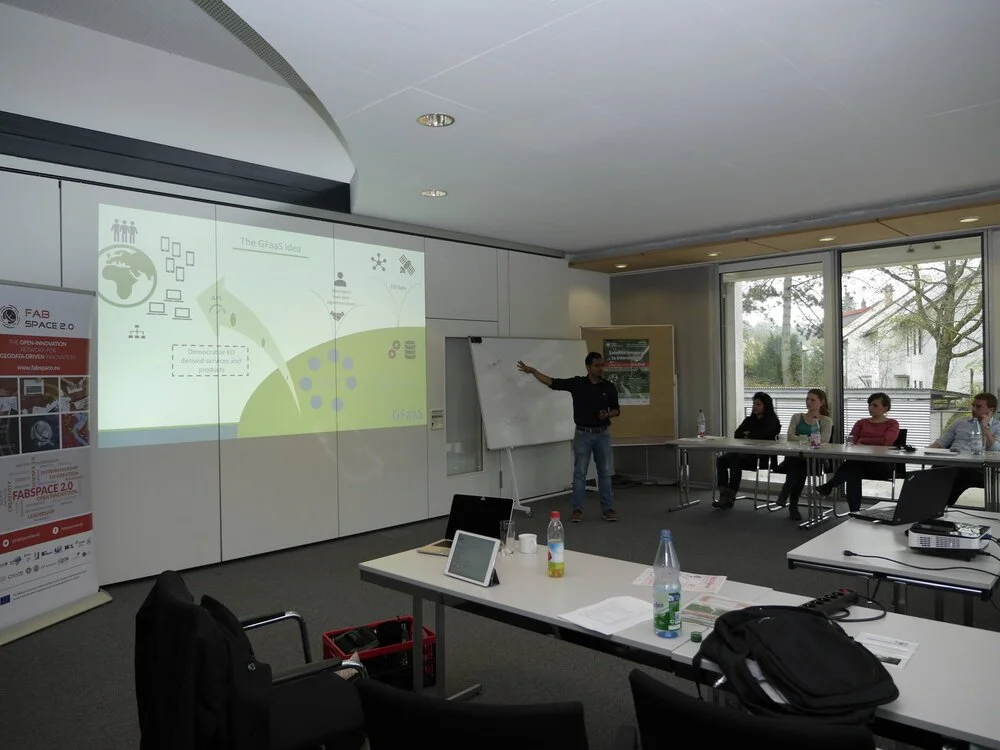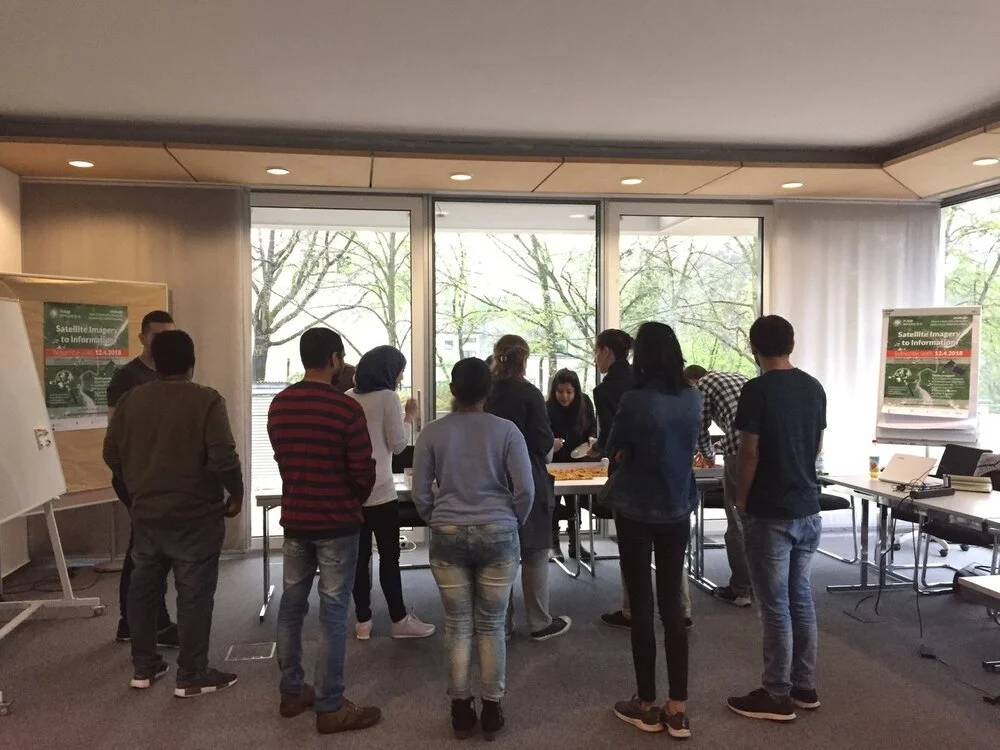“Explore pixels” in Cooperation with FabSpace 2.0!
Spacenus hosted a two-session Hackathon “Explore pixels” in Cooperation with FabSpace 2.0!
Riazuddin Kawsar (CEO, Spacenus GmbH) gives a short introduction about GFaaS (Photo source: FabSpace 2.0)
In April and May, FabSpace 2.0 and Spacenus organized a hackathon, which was split into two sessions. The event took place in our beautiful premises in Darmstadt Eberstadt and was addressed to all those interested in Earth Observation (EO) and EO image analysis. Spacenus was happy to host such an event. Mainly, students from the Technical University of Darmstadt came, but also participants from other fields, who are interested in Earth Observation.
To give an overview, Bayzidul Islam, Sascha Heisig, Lionel Born, and Riazuddin Kawsar introduced the companies FabSpace 2.0 and Spacenus and the objectives associated with the hackathon. The challenge was to develop an algorithm that can distinguish between clouds and shadows on Sentinel-2 satellite imagery. Spacenus presented the ongoing project Geospatial Framework as a Service (GFaaS), supported by the European Space Agency (ESA), a platform where developers and companies can host their geospatial algorithms and tools. The platform aims to democratize processed satellite data.
In the hackathon, the participants divided into different groups and discussed possible approaches opted for the computer vision approach as a machine learning algorithm such as the Generative Adversarial Network (GAN) and the t-Distributed Stochastic Neighbor Embedding (t-SNE) to develop the model.
Lunch break! Good opportunity to get to know Spacenus (Photo source: FabSpace 2.0)
In the first session, the focus was on getting to know the team members and understanding the tasks. FabSpace and Spacenus supported the team with all belonged topics. Together they developed a strategy to achieve the goal. By the end of the first session, the team was optimistic to succeed. Until the 2nd session, they had the opportunity to keep working on their project and deepen their knowledge.
When the second session started, Spacenus and FabSpace 2.0 were excited about the outcomes. The participants presented their results which they had worked on since the first part of the Hackathon. The idea was to develop a cloud detection algorithm, so they set the framework for a demo version.Spacenus and FabSpace 2.0 were very impressed by the results - we can’t wait for our next adventure to begin.
For Spacenus as well as for FabSpace 2.0 the hackathon was a complete success and is just the beginning of further possible exciting projects together.
We are looking forward to it! Thank you for the cooperation, FabSpace 2.0!


